Anatomy of an Era: Final Chapter/GOAL SETTING
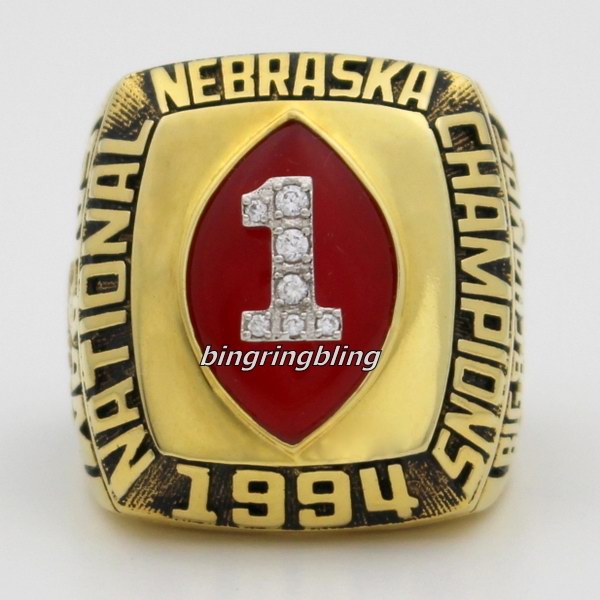
Excerpted from Chapter 104, No Place Like Nebraska: Anatomy of an Era, Vol. 2 by Paul Koch
Anatomy of an Era: Final Chapter/GOAL SETTING
GOAL SETTING
Branching off of the whole spectre of motivations listed just previous, the team’s next logical step was to annually set their sights on some goals. They went about it by arriving at them both for the short-term, medium- and long-, giving legs to the process and keeping it all in motion during the long off-season preparation period. In the case of the 60 & 3 era, these weren’t just high-minded, dream-filled, unattainable aspirations. No, they were a map marked with roadside targets serving as landmarks along a route to the crowning of a champion on the bowl game’s midfield stage. It’s way too easy for a college kid to get lost in the winter through summer season, much less a multitude of them, so this was a key element in setting the scene. Master sales guru Zig Ziglar once said, ”What you get by achieving your goals is not as important as what you become by achieving your goals.” I’ll second that, because they became quite something and achieved far greater than all else.
The process of goal setting started years before with the coaching staff…
…we invited a guy from Edge Incorporated in Phoenix, and he really sold us on goals. He said, “Goals give drive and energy.” – George Darlington
Just not to ever lose sight of your goals. That’s one thing that Coach Osborne really taught me. Every week they would set goals. And they’d go over them every week whether they made them or not, marking them either black or red. – Mary Lyn Wininger
We spent very, very little time talking about winning and losing, but he did talk a lot on playing better than we played last week and continuing to improve… Our whole thing and Tom’s whole thing was ‘You‘ve got to play better than you did last week, and play to the best of your ability,’ and that’s all that you can be accountable for. – George Darlington
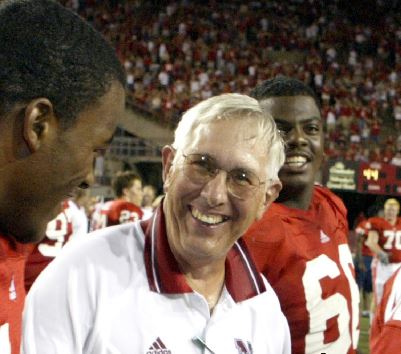
Coach George Darlington
They gathered together to chart out a destination…
…early on in camp we would be in an all-team meeting. We would sit in there and would put down that year’s goals on the whiteboard, and they would get each position and each game goal. You’d have this many yards per rush and all that, but I can remember ‘Winning the Big 8’ at that time, ‘Winning the Bowl Game’… you knew if you took care of business there you were gonna have an opportunity to compete for a national championship. – Terry Connealy
Trev Alberts was part of that conversation, him being a senior, and Kevin Ramaekers was around… later that night (after the Florida State loss) we were all hanging out and saying that it should never come down to a field goal, that we want to be the ones on the field controlling our destiny and not on somebody kicking a ball. – Zach Wiegert
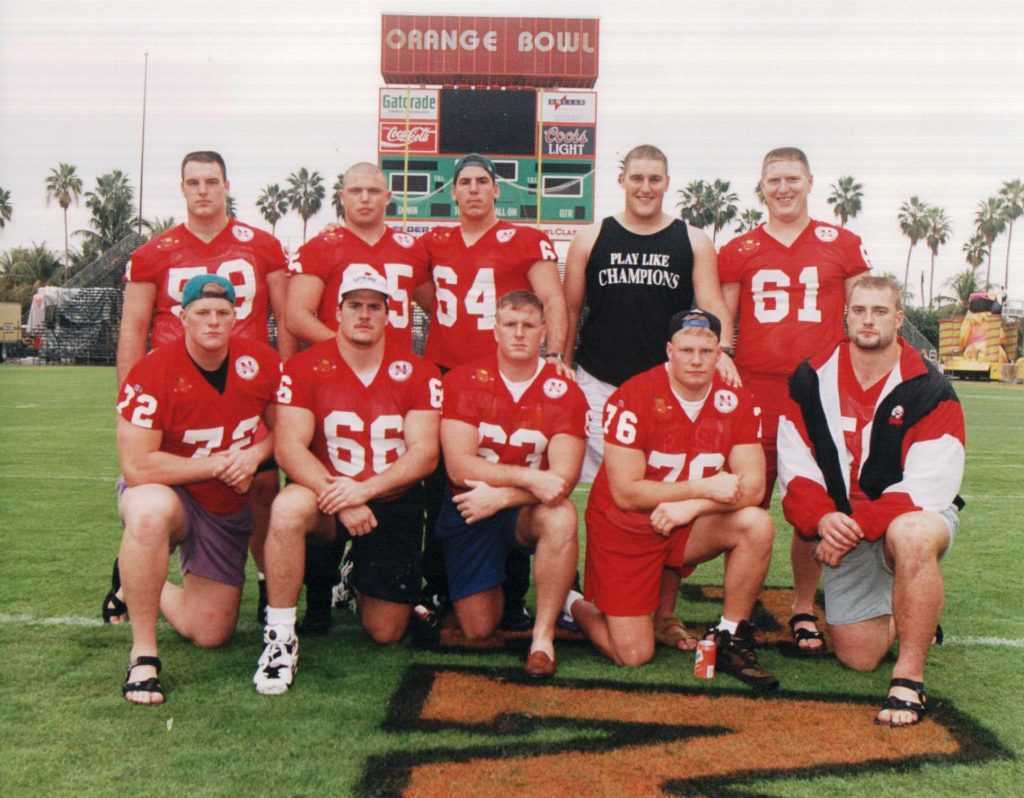
Nebraska O-Line pre-Orange Bowl
(The Husker Power) four-step philosophy of testing first, evaluating, then setting goals, then following the program …we went over goals and what it was going to take to win. I said, ‘If you’re going to commit to the plan, I want you to put this red jersey on right now.’ And every single one of them put the jersey on. I said, ‘Alright, every day I want to you to wear this jersey to winter conditioning, and when you put this over your head, when your neck passes through this jersey, I want to you to remember you’ve committed to these goals. If you show up over there without the red jersey, you’re done. If you’re gonna commit to these goals, put the jersey on.’ And they put it on. And then I said, ‘I want you to stand if you’re committed.’ It was all about getting them to commit to doing all of this… – Boyd Epley
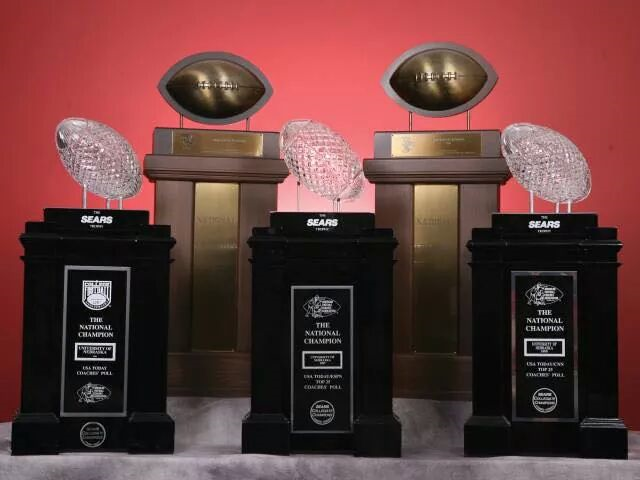
The fruits of Boyd’s labors
A culture of achievement was promulgated…
Just all the fringe things, they all played a part in creating a championship atmosphere. It wasn’t just football. We wanted to have the most academic All-Americans, we wanted to set strength records. It was constantly creating a culture of achievers. – Chad Stanley
…the key for me, just knowing that there needed to be a series of goals to try to accomplish -and eventually bigger things will happen… That’s kind of how the plan was supposed to work… – Matt Shaw
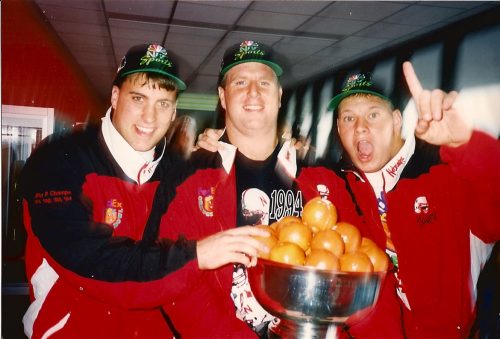
Matt Shaw, Aaron Graham and Joel Wilks
…that was the goal at Nebraska, to achieve perfection. – Lance Gray
And if there would have been a goal after winning the national championship, I think we would have achieved that, too. – Jacques Allen
Early on, our goals were to develop a respect for the student-athletes’ academic performance on the University of Nebraska campus. – Dennis Leblanc
It spread to and among the players…
We had conversations about goals that we made that game, and we always talked about the ones we didn’t and tried to get that figured out… – Troy Dumas
…they concentrated on goals and the focus of having a championship team… a reminder of ”If we stumble just once our dream, our goal, it’s gone. This is the week to take care of your business and take care of your bodies.” – Jack Stark
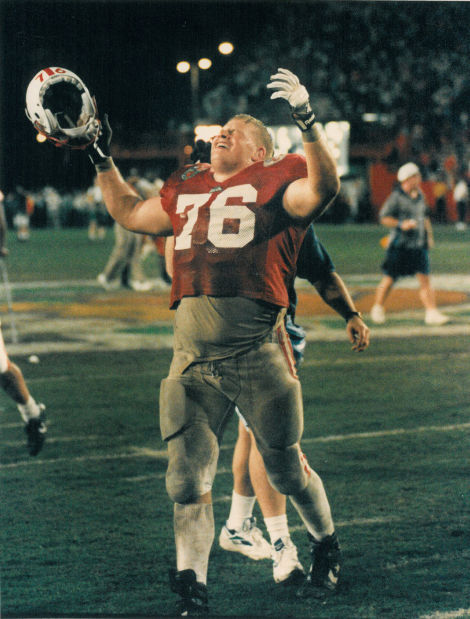
Team goals took top position…
… when we stepped on that field, there was one common purpose and one common goal, and that was all that mattered. You didn’t have to be buddy-buddy with everybody on the team, but the sense of focus and sense of purpose and a single-minded goal, especially when we were driving for those two national championship seasons after we came up short against Florida State… For Coach Osborne, inside he really wanted the national championship. It really became a goal. It was no longer something that was put up on a board in writing and talked about… – Eric Stokes
To know that was out there for us to get and we all worked hard to get it stands out in my mind, to achieve that goal… And it wasn’t just us, it was the whole team: the trainers, the medical staff, the collection of people who had a goal in mind and we got there. – Bill Humphrey
We had a goal and we all came back together as such a team… we had one goal in mind and it didn’t matter if you were black, white or yellow, starter or non-starter, you just had to get out there and do it… – Phil Ellis
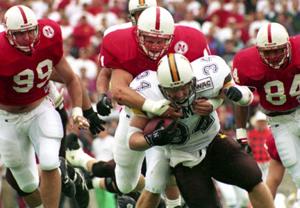
We were more about the team, but …my junior year …I think it was two-to-one odds for me to win the Heisman. But there was never any talk. That was one of the goals I had as an individual, but as a team we just never talked about the Heisman or any type of award, because like Coach Solich would tell us, “If we do what we need to do those things will come. We don’t need to worry about that.” Those things would take care of themselves. – Calvin Jones
There were offensive team goals…
…our goals were ridiculous: Rush for 400 yards per game, Don’t get any penalties, Don’t give up a sack. The numbers were staggering. I confuse the numbers between ‘94 and ‘95 sometimes, but in ‘94 I think we gave up two sacks and in ‘95 we didn’t give up a sack… – Aaron Graham
We had at least 25 goals that we were trying to achieve each week… Coach Osborne having 25 goals you wanted to achieve… (How often did you meet those goals?) Right around 15 was the average. One of them, I don’t remember them all, it was something like ‘so many offensive plays over 25 yards’, it might have been five. For Tommie, he wanted 55% completion percentage. – Bryan Pruitt
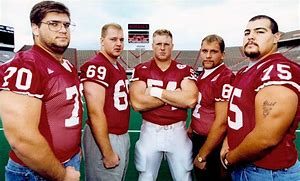
’95 Pipeline
And defensive team goals…
…we had all the goals, 20-25 goals, all these esoteric numbers. We had a goal to keep someone from starting (their offensive series’) at less than the 25 yard line, we wanted to start by the 35… we had all these goals. And what you found out was that as you achieved more of those goals you become more of a complete team. And you were able to demonstrate -even though we may have beat someone fifty to ten, we only got ten to twenty goals– and if that happened, there’s probably film to be looked at to show why we didn’t have as good a game. What that does, is it teaches you that it’s not so much the score, it’s about playing to your max ability. And if you can do that, and you lose, you just got beat by a better team. But the goal is to get as close to your max ability as possible. And if you can get teams to focus that way, those are the teams that end up special. – Troy Branch
I remember on the defensive side we had goals, a little laminated sheet of the goals for the ‘95 class. I remember some of the goals of the defense was to keep the total yardage to 285 yards or under for the opponent. Another goal also was to have three turnovers per game, so those were little things to look at. And of course, we were averaging close to 500 yards or so on offense, so if we could keep the opponent under 285 (and a lot of times we held them to 250 or 225 total yards by the opponent) which, “Hey, if you keep them off the field and you get yards, they can’t score.” – Darren Schmadeke
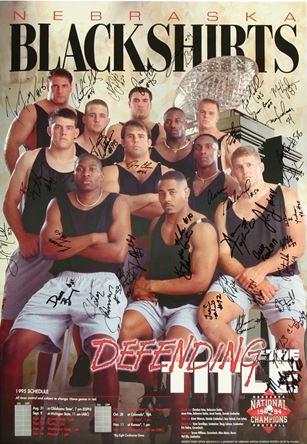
Doug Colman (center)
We’d actually make them up. We’d all come up with our own individual goals, and it was something to go out there and try to meet them. And if we did, it meant we’d win. We’d always go 105 miles per hour and not worry about it, but they were set at a high level and we were going out there determined to play at a high level every game. (The main, overriding goal?) No touchdowns! We always felt that the offense only had to score 7 points per game. If they could do that we felt we could win… We had goals for scoring, passing yardage, running yardage, turnovers, those were the biggest ones. We’d usually hit most of them, too. Some of the passing teams would be a little higher, but we usually made our goals. – Troy Dumas
A lot of the goals were taken to be “Top 5 in the nation in this category.” There were other times the goals would change some because of the strength of your opponent. Maybe we would be playing Oklahoma and our goal was giving up 13 points a game, and they were a very powerful offensive team, so this game 16 points is a realistic goal, so we would modify stuff… they would come in on Monday and really want to know, “How many goals did we accomplish Saturday night or Saturday afternoon?”…We had a goal for interceptions per pass attempt, for turnovers, how many times did we give the ball to the offense, get our offense inside of their fifty, third down efficiency, first down efficiency, no foolish penalties, penalty yardage, two or less big plays for the opponent, so we had certain goals like that.”These elements will allow you to be successful if you accomplish a percentage of them.” – George Darlington
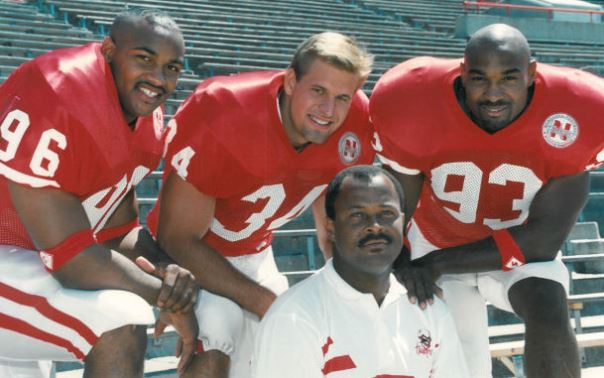
Coach Tony Samuel with David White, Trev Alberts and Travis Hill
Which led up to the one humongous, audacious, monstrous, king-of-the-mountain goal of them all…
That was the ultimate goal from day one. I remember when the phrase was coined: Unfinished Business. The team -and pretty much the state- that became a state motto in my mind, not just a team motto. – Tony Samuel
…we had a list of goals in our team meeting room that we looked at every time we gathered together as a team. They would say things like, “Win the Big 8 Championship, Go Undefeated in Big 8 Conference play, Undefeated in regular season play..”, and then it would say something like “Go to the January 1 Bowl Game”, and then it would be “Win the Bowl Game.” What we changed in that ‘94 season -it was a very difficult thing for Coach Osborne to do- but he allowed us to do that where we changed the goal to say, “National Championship.” That was our goal. So Coach Osborne –who we all loved and adored- for him it was a difficult thing, because he always felt like, “If we didn’t achieve that goal, then it wouldn’t have been a success,” for him. …And we got Coach Osborne to agree with us, to say, “We’ve been there, we’ve done that. We’ve won all our regular season games. We’ve won our conference. We’ve played in a January 1 bowl game. We’ve done all of that.” The reality of it is that we were in the position to win the national championship and we came up short. So next year’s team goal, our final goal, was to win the national championship… It was a team meeting, and I remember it vividly. We were setting our team goals, and for him it was not an easy deal- after losing to Florida State – it was not easy for him to allow us to do that. We talked about it and communicated, and people stood up and gave their opinions. And it was a consensus to say, “If we’re gonna do this we’re all gonna have to be on the same page, but that is our goal. Our goal isn’t to go to a bowl game or just go undefeated, it was to win the national championship.” And you know, he lifted his hands up and in typical T.O. style looked at us and kind of gave us his acknowledgement of it as, “That’s what we’re gonna do. That’s gonna be our goal.” We took a vote on it as a team, and that’s what we voted… And we all put our name and our stamp on it, that that was our goal: to win the national championship… – Aaron Graham
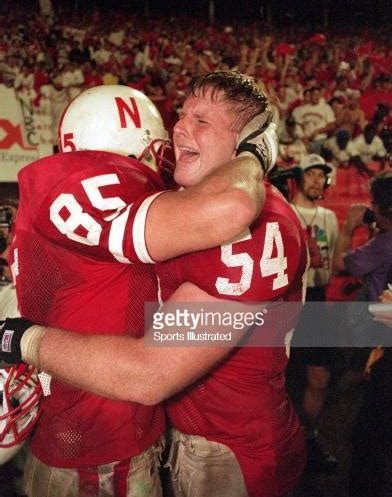
Which was parlayed into a mindset that went hand-in-hand with achieving the goal…
…we made it a point that when guys played us they were going to feel it. They were going to walk out of that stadium and say that they were in a ballgame. I think we played like that every game. – Trumane Bell
That was our mentality.”Don’t let the referees decide the game. We should go out there and destroy them. They shouldn’t even make it that close.” – Cory Schlesinger
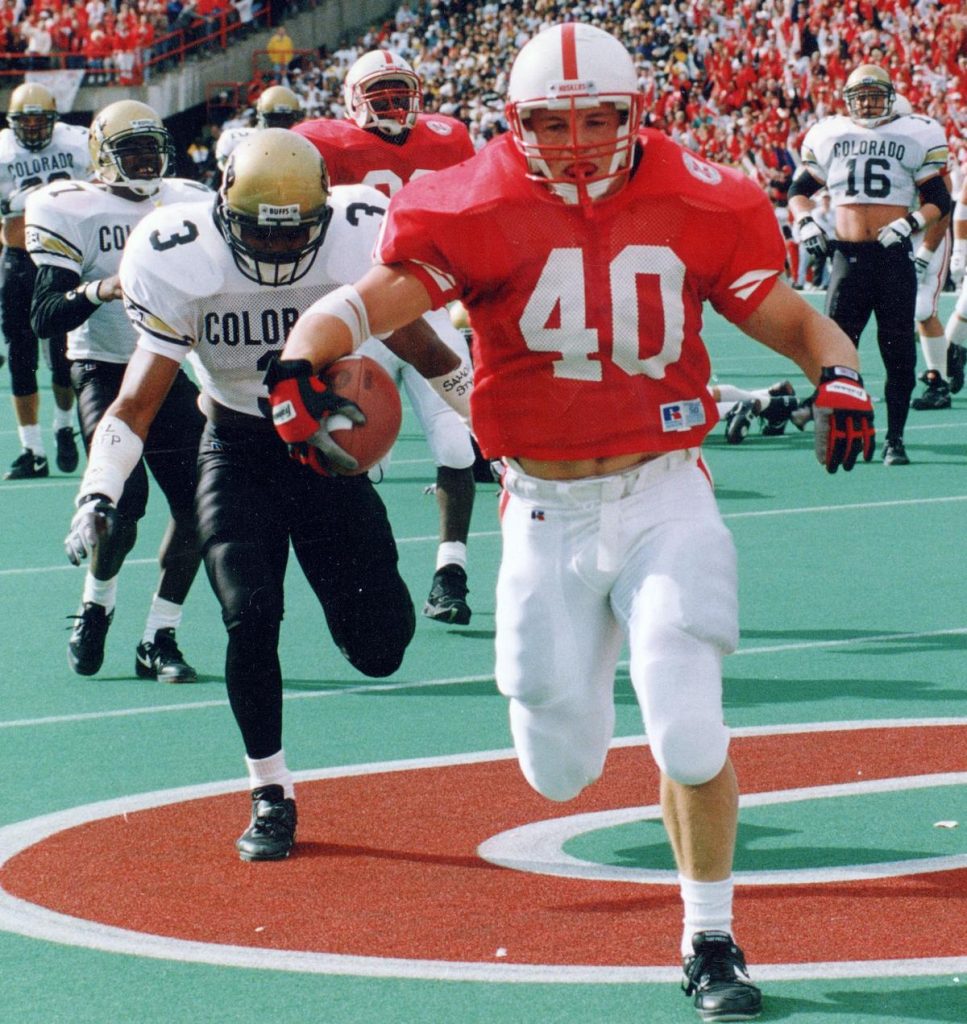
Schlesinger scores vs. Colorado, 1994.
…our mentality… was that we wanted to hurt you. We didn’t want you to be in the hospital for an extended period of time, but just long enough for the doctor to check you out and say you could go back home… – Jason Peter
Milt talked about being nasty. He kept track of knockdowns, pancakes, something that was recorded week to week… – Adam Treu
…we would always go to the 50 yard line and do these drills in front of all those linebackers of the other team as a way of showing, “This is what’s coming at you during the game, so you better be ready.”…we were all very good, our pad leverage and everything. You’d hear that ‘thud’, that hit, and it would sound so nice every time… – Cory Schlesinger

Available on Amazon.com
The team goal-setting meeting at the start of each off-season was not merely an occasion to set out a standard to achieve, reach or maintain, but to do so publicly and in a way that revealed the players’ expectations predicated on their own team-wide evaluations. They were calling on themselves to take a stand and to hold each other accountable to the vows they’d made, in essence. The occasion very much resembled a private wedding ceremony wherein they bonded as one, girding for the challenges ahead, promising not to back-off their claims regardless of sickness or health, for richer, for poorer, for better or worse. Their relationship experienced that gamut of happenings, too, and they stayed true to one another through it all.
Copyright @ 2013 Thermopylae Press. All Rights Reserved.
Photo Credits : Unknown Original Sources/Updates Welcomed
Author assumes no responsibility for interviewee errors or misstatements of fact.
Summary Chapter to be continued…..